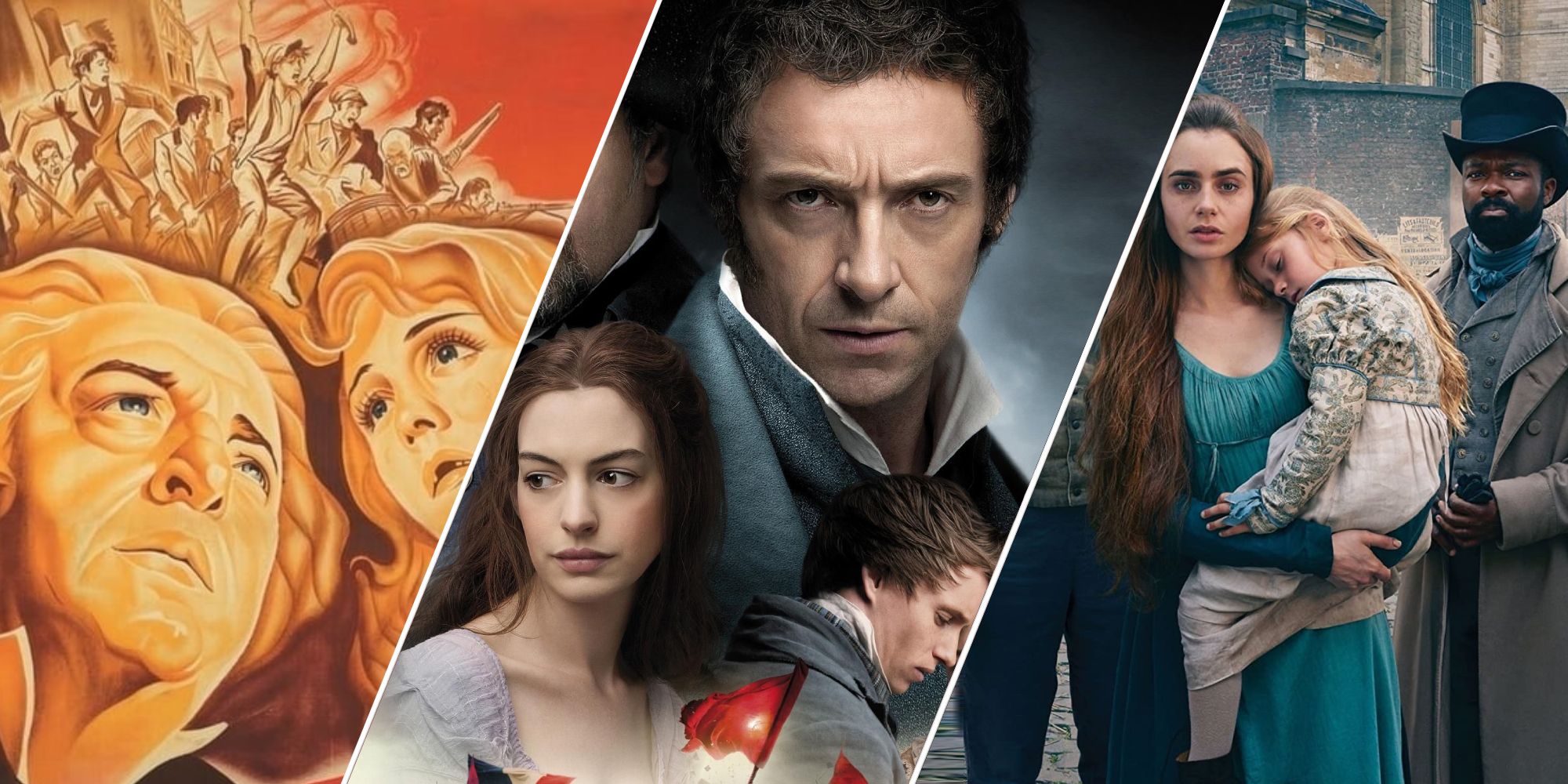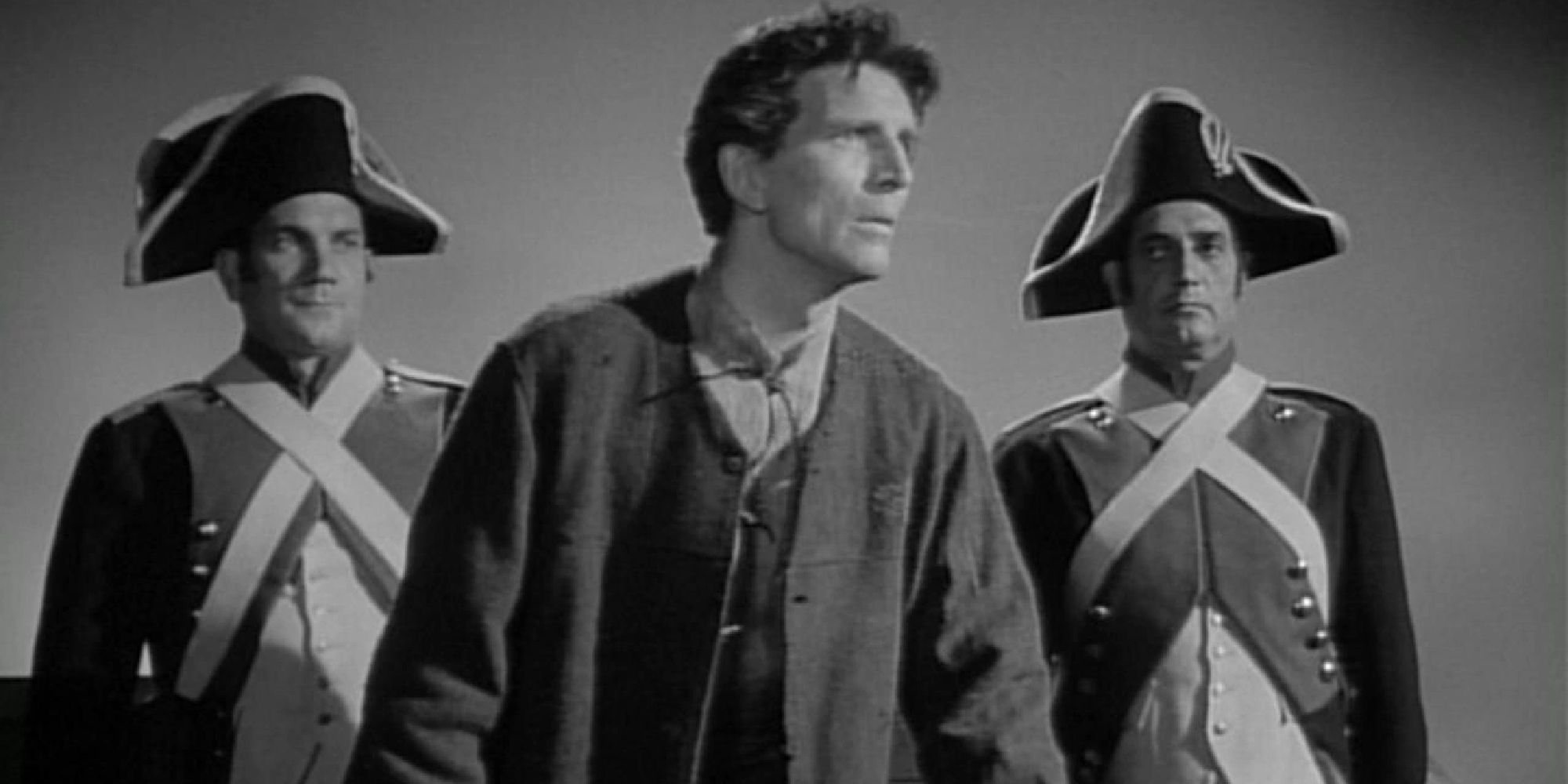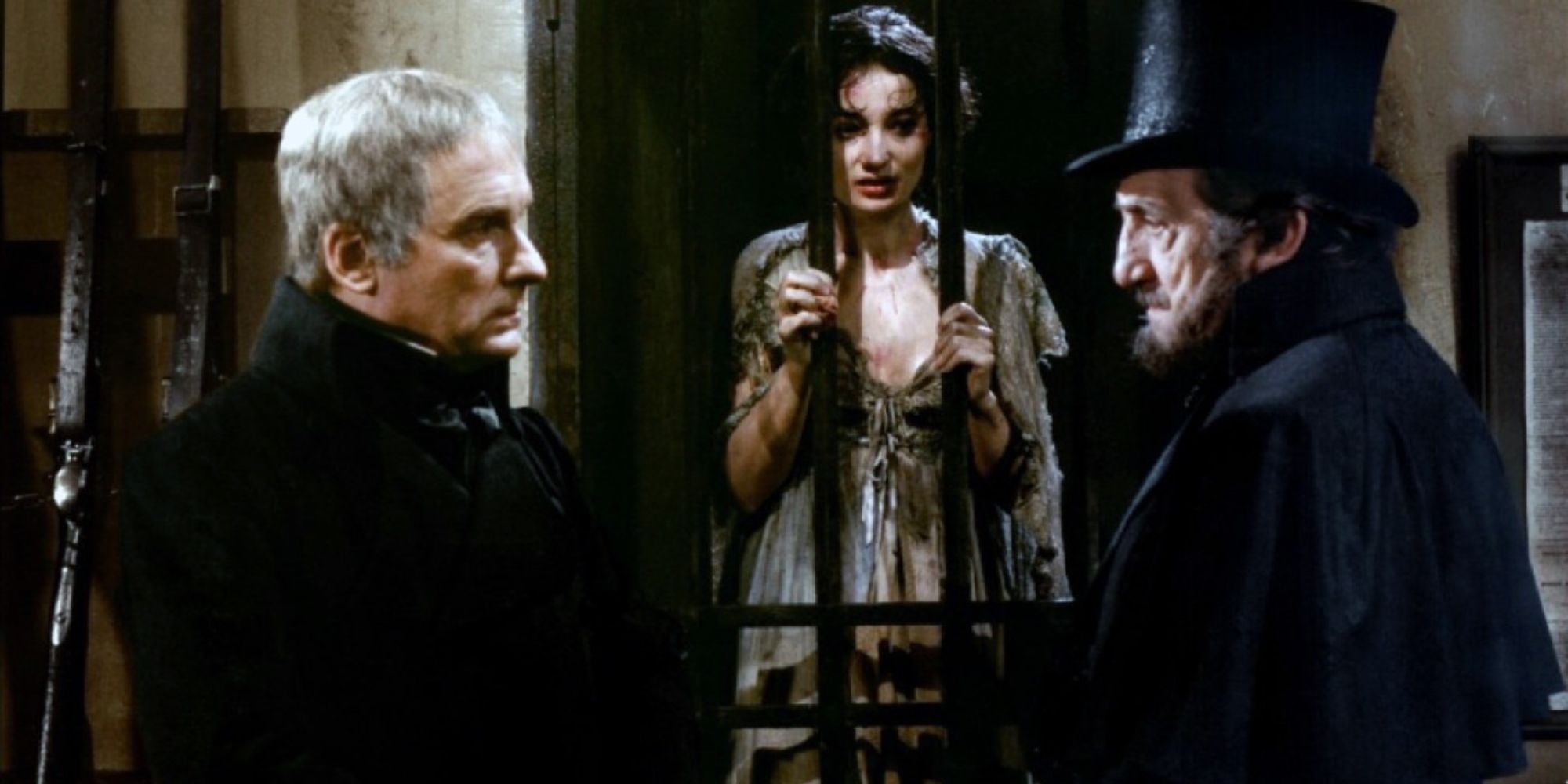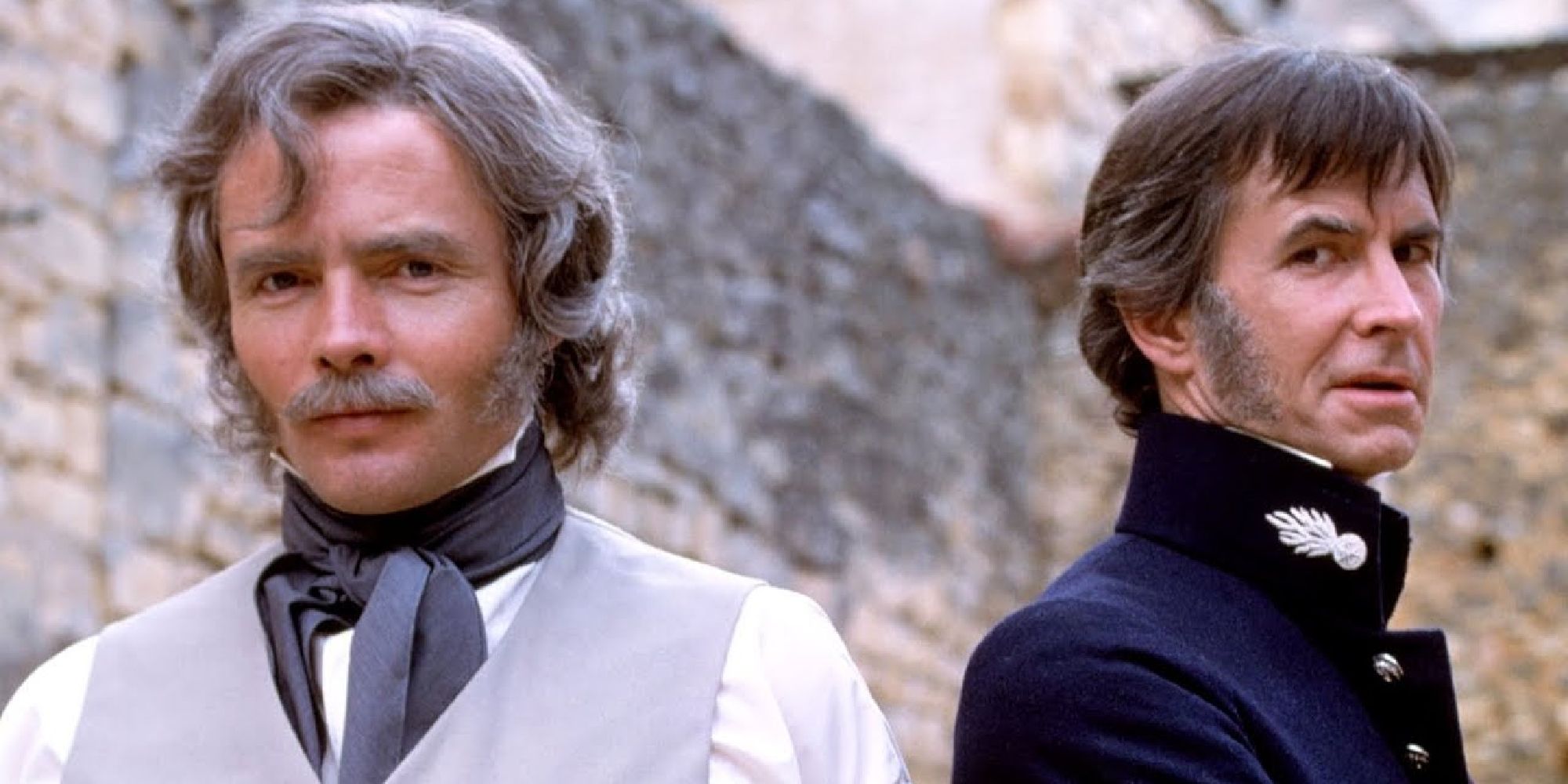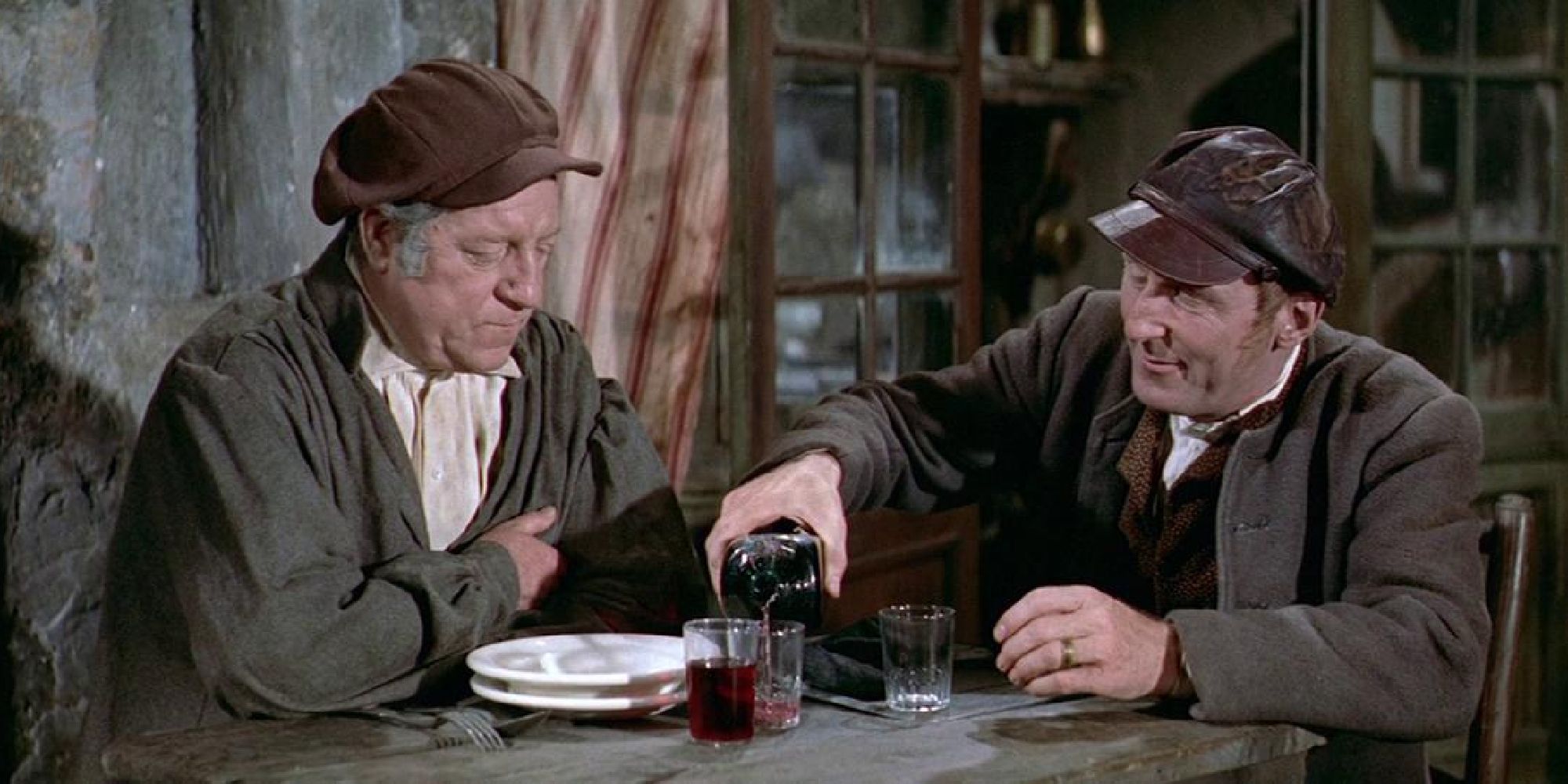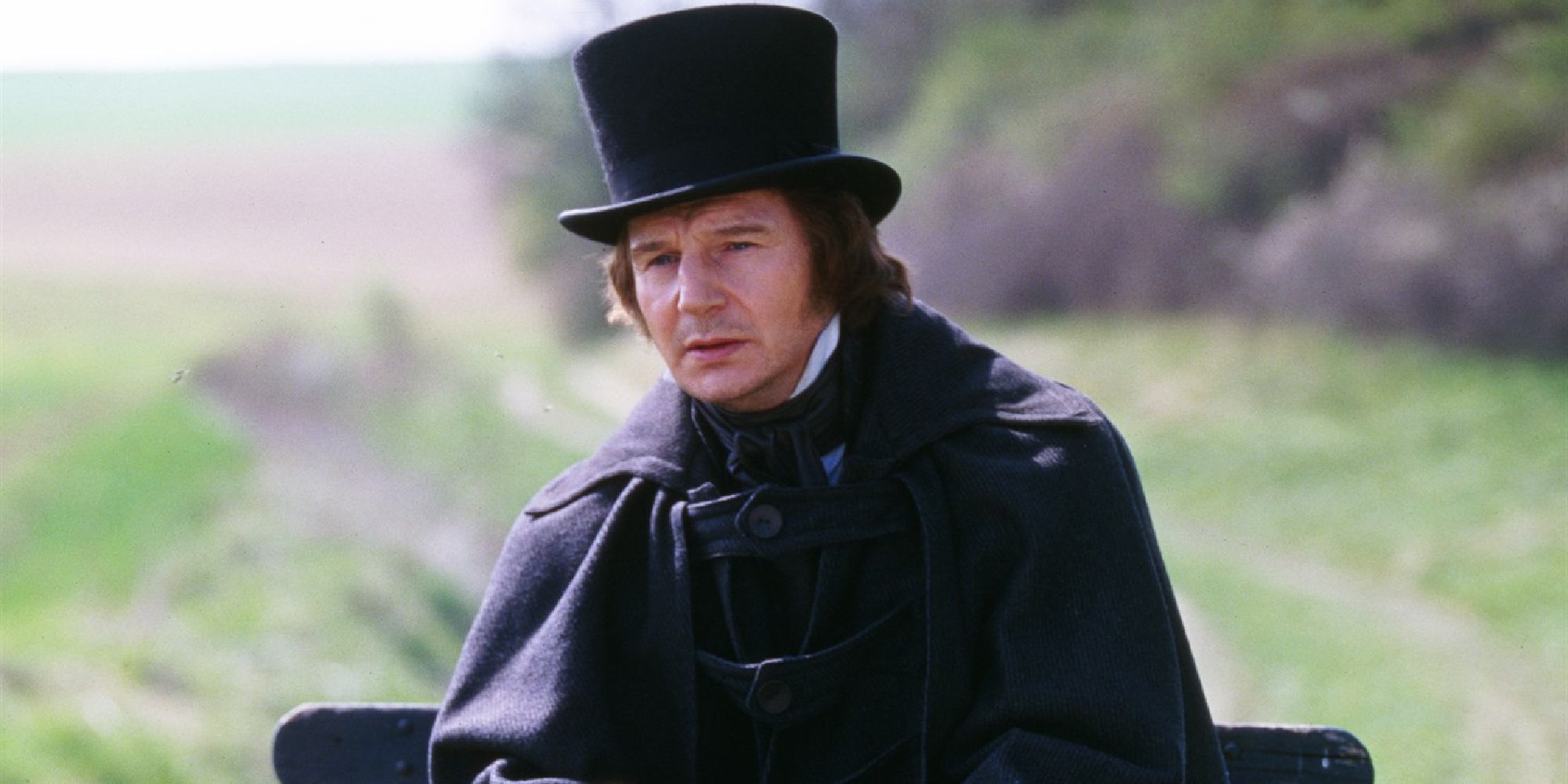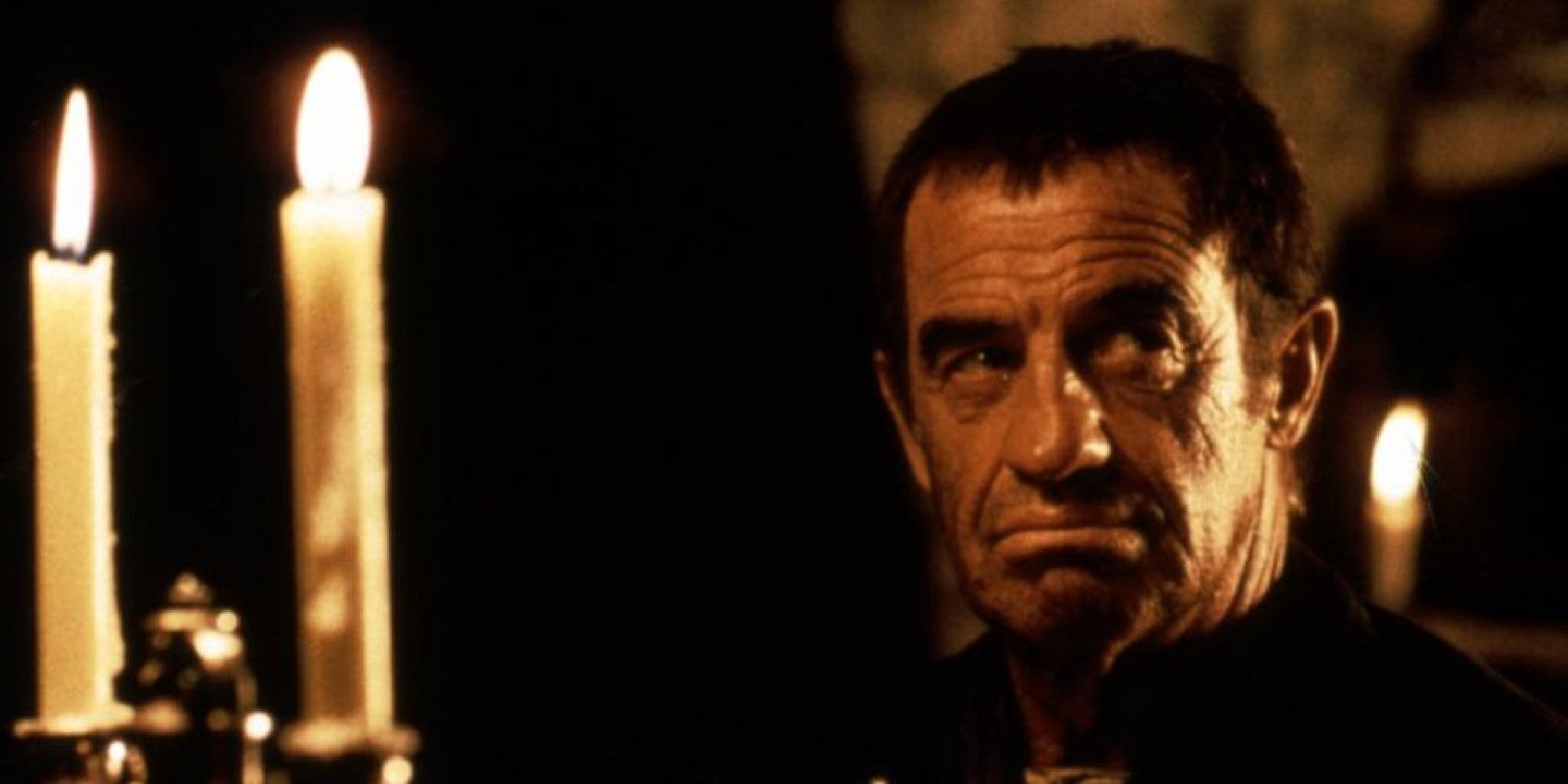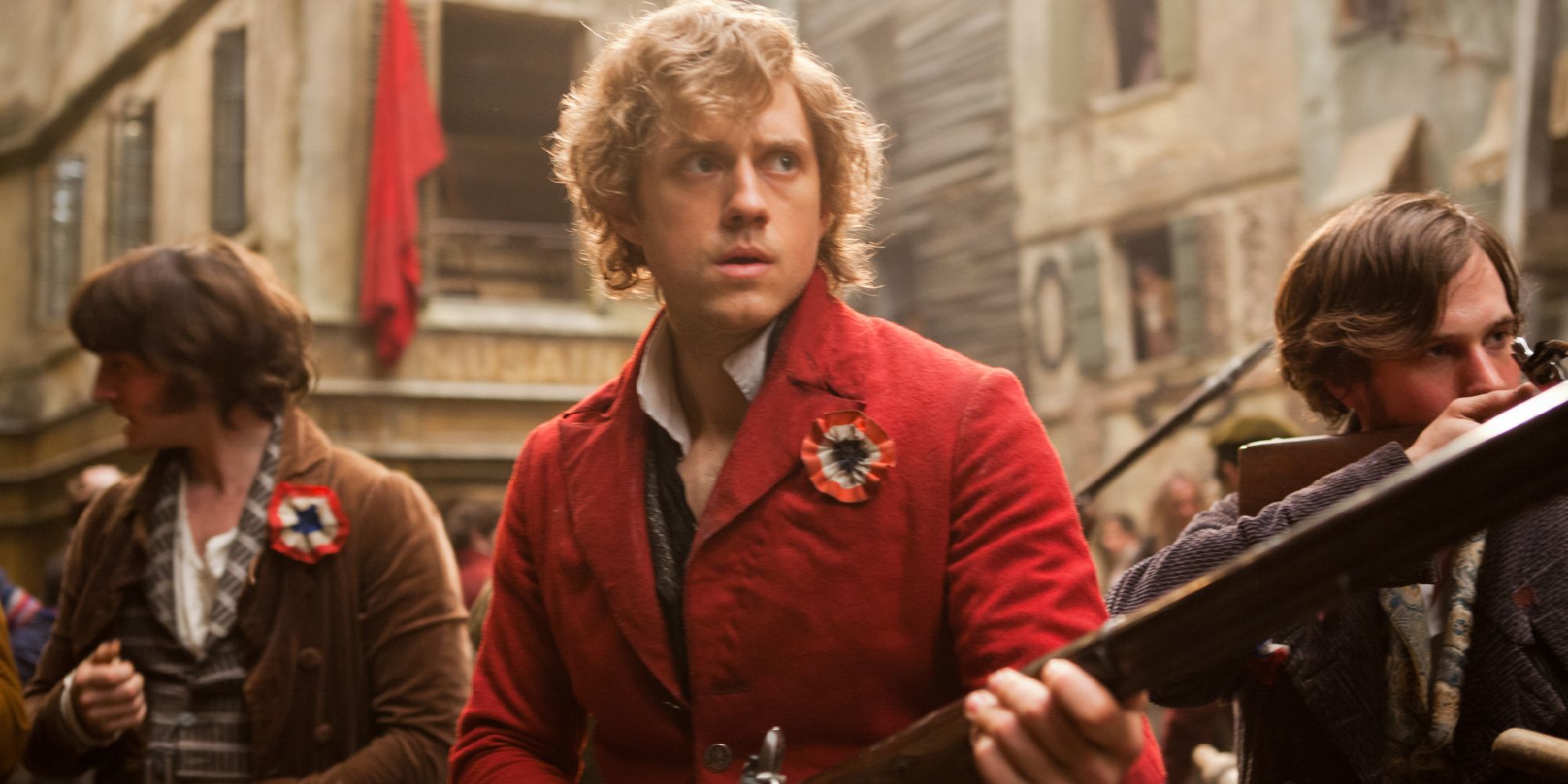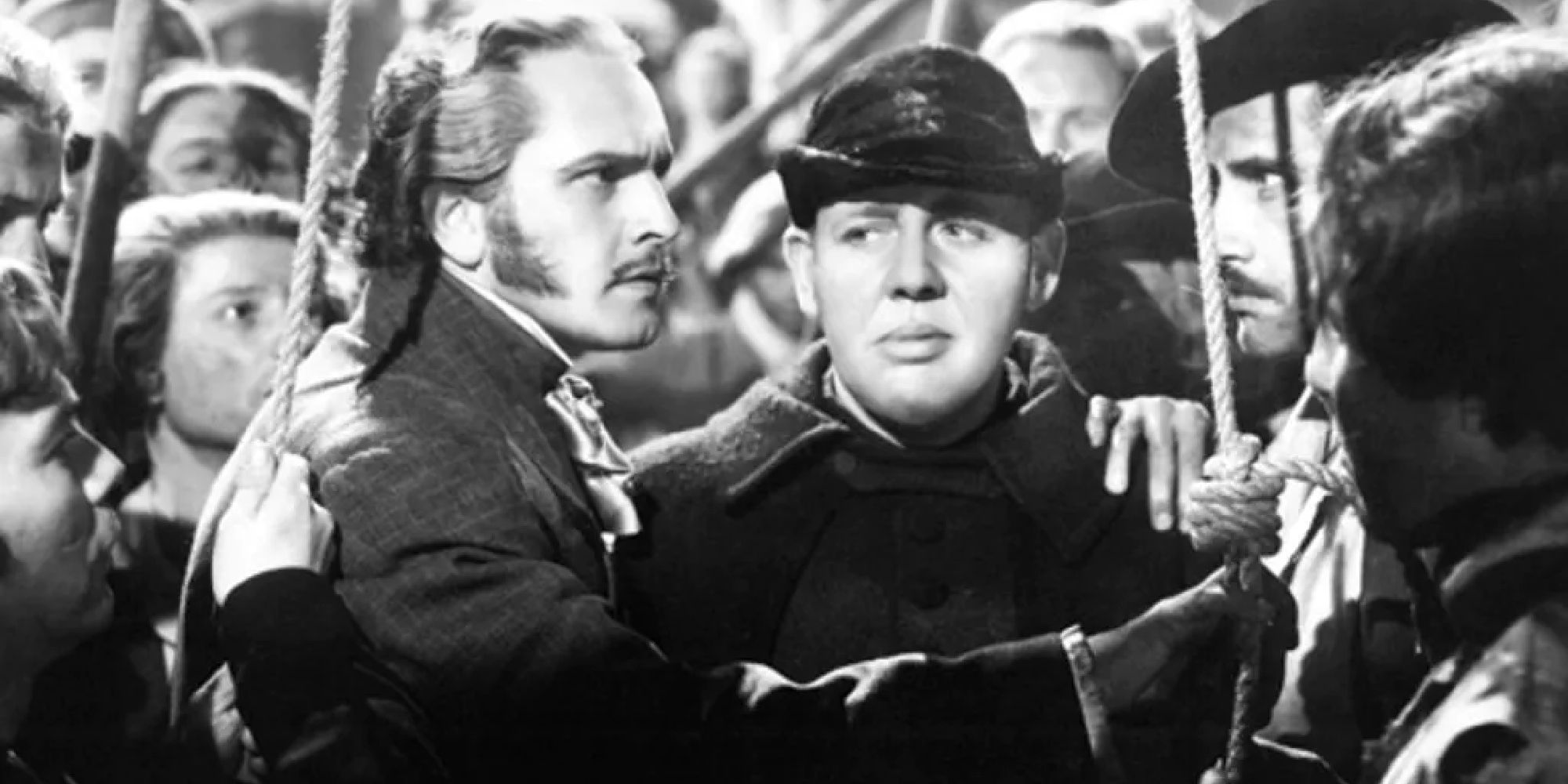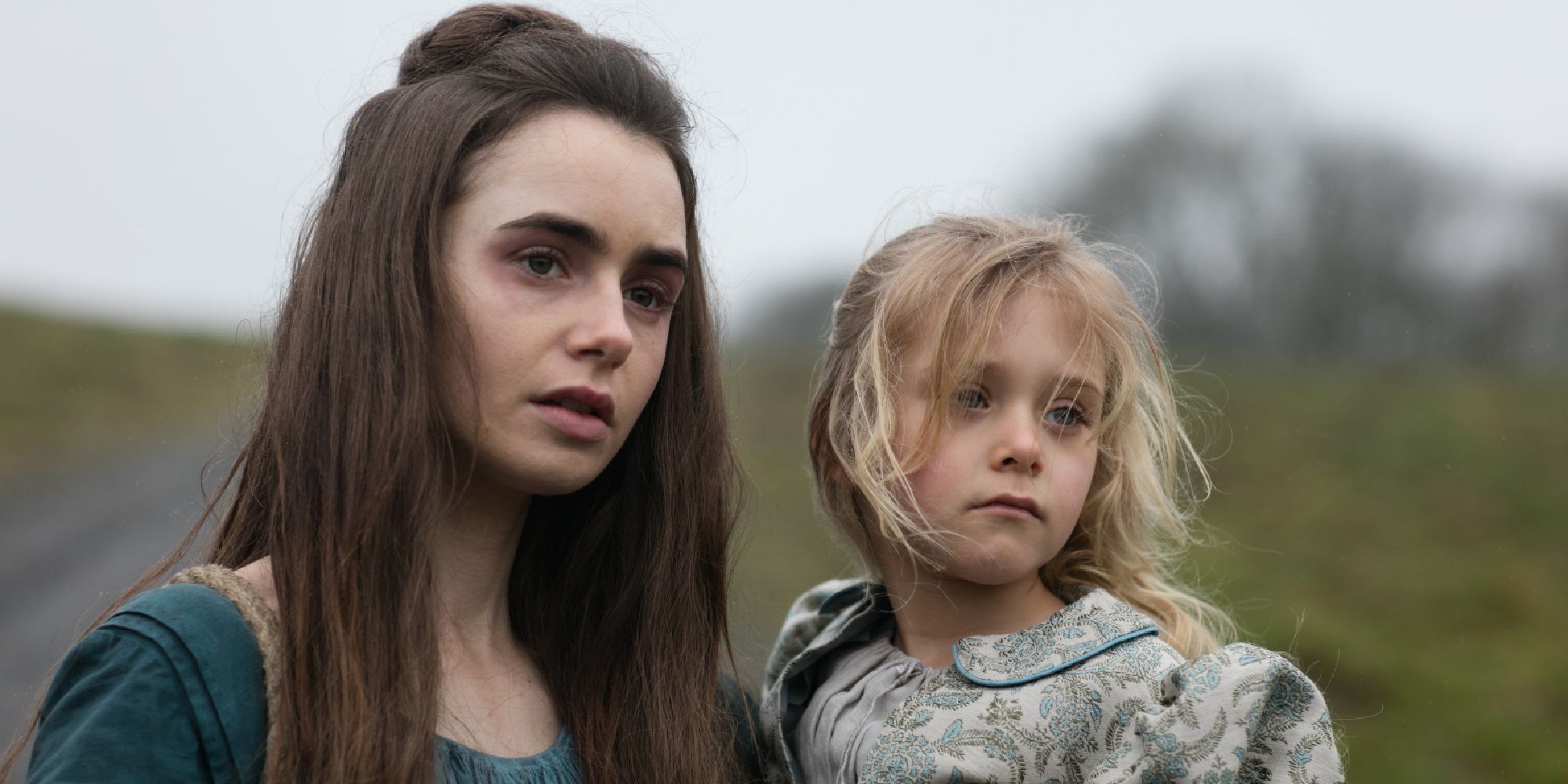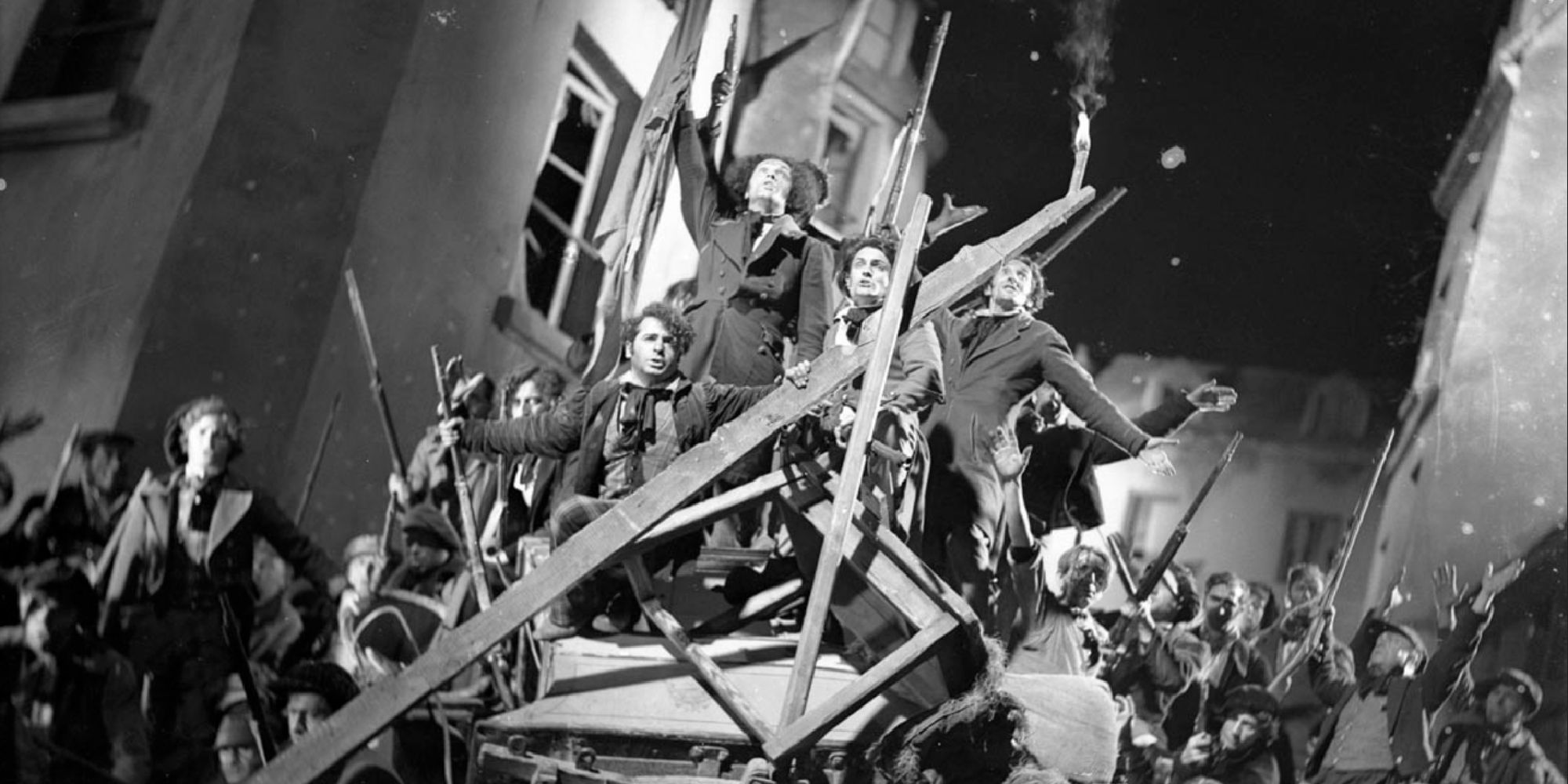It might surprise you to learn just how many Les Misérables films there are. Victor Hugo's epic novel about the law, crime, social inequality, and revolution is a timeless one, and certainly one that filmmakers continually return to again and again. There are quite simply too many adaptations to count, with some existing as early as the 1910s (though these are generally lost films now, due to their age.)
It speaks to the sheer volume of Les Misérables movie adaptations that there are 10 that can be listed and compared. Also potentially surprising: despite the popularity of the stage musical (itself an adaptation of the original novel), the vast majority of Les Misérables films adapt the novel and don't feature consistently sung dialogue. This is not a list of every successful Les Misérables adaptation, but rather 10 notable ones, ranked from lowest to highest, based on their IMDb score.
This list contains spoilers for Les Misérables.
'Les Misérables' (1952) - 6.8/10
Truth be told, 6.8/10 is a little generous for this particular version of Les Misérables. It certainly feels like it was produced pretty quickly, as many standard Hollywood movies from the 1940s and 1950s often did, and it makes some strange omissions to the original story in the interest of getting the mammoth novel down to a single 105-minute movie.
It's not terrible. There are certain beats that it hits well enough, and until the ending, you do get the core story depicted solidly enough. However, it ends up being just sort of okay at best, and with so many other Les Misérables to choose from, it's probably one you can afford to skip.
'Les Misérables' (1982) - 7.2/10
There's a general theme that tends to emerge with Les Misérables adaptations. They're either edited down to two hours or less and will cut out significant characters (usually Monsieur and Madame Thénardier) or chunks of the story (often the finale/epilogue), or they'll otherwise be epic-length movies, nearing three hours, or even exceeding it.
1982's Les Misérables is one such example of an epic adaptation of the story. It's a French production that clocks in at three hours and 40 minutes, meaning it can keep a good deal of the original novel's story. It's also notable for making a couple of death scenes happen slightly earlier in the plot than usual, making the already tragic story come across as even sadder.
'Les Misérables' (1978) - 7.3/10
Perhaps best described as the version of Les Misérables where Norman Bates from Psycho is Inspector Javert, this 1978 take on the classic novel was a U.K. production, and was made for television, running about 2.5 hours in total.
In all seriousness, Anthony Perkins is a great casting choice for Javert, the story's primary antagonist. He'd proved how intense and effectively menacing he could be as Norman Bates - one of the all-time great film villains - and that intensity and theatricality are needed for a well-executed Javert. If there's any reason to check out this otherwise decently-rated adaptation, it's probably Perkins.
'Les Misérables' (1958) - 7.4/10
With this 1958 French version of Les Misérables coming in at about 3.5 hours in length, perhaps it shows a pattern starting to emerge. French producers and directors tend to want to tell the full story contained in the book (or something close to it), while adaptations in the English language are potentially made by those who don't trust the audience to be so patient, leading to noticeably shorter adaptations.
Perhaps most interesting here is the dramatic age gap between the protagonist, Jean Valjean, and the antagonist, Javert, as the latter is only a boy when he sees the former for the first time, as a convict. Generally, the two are closer in age. Also notable: this adaptation may not have been huge internationally, but it was immensely popular in France, being one of the highest-grossing movies of 1958 there.
'Les Misérables' (1998) - 7.4/10
For contemporary western audiences, 1998's Les Misérables is likely the best-known adaptation (at least until 2012). It uses its large budget to give the epic story a suitably epic feel, and has some big-name actors in leading roles, including Liam Neeson as Jean Valjean, Geoffrey Rush as Javert, and Uma Thurman as Fantine.
It's a slight shame the technical strengths may be somewhat undermined by another fairly aggressive adaptation, with a ton left out to get the film down to a fairly digestible 134 minutes. Most choices might not hurt the story too much, but the one at the film's conclusion does: ending the film with Javert's death makes things feel almost comically abrupt, and makes you wonder why they couldn't add an extra five-minute scene as an epilogue, to show Valjean passing away from natural causes.
'Les Misérables' (1995) - 7.5/10
1995's Les Misérables is another French production, and another long adaptation, clocking in at just under three hours. However, it differentiates itself from comparably epic takes on the novel by adapting the story in a way less directly than normal, while retaining the classic story's spirit.
For starters, it's set in the 20th century, rather than the 19th, and in a post-modern spin, follows an aging man who's introduced to the book, and begins to see parallels to its narrative and themes in his own life. In a way, it is an adaptation, hitting some similar beats and needing the source material to exist, but the way it goes about exploring the book makes it very different from most Les Misérables movies.
'Les Misérables' (2012) - 7.5/10
2012's Les Misérables stands as the most recent feature film adaptation of the story, and also stands out because it's an adaptation of the stage musical, rather than the novel. What that boils down to is that it tells the same story, regarding Jean Valjean's quest for redemption whilst being pursued by the ruthless Javert, only all the characters sing instead of talking.
The results are interesting. There are parts that work well, and parts that really don't. Some of the music sounds great, and some of it doesn't, given not all the cast members were necessarily selected for their singing ability. All the while, it's also shot very unusually, with plenty of shaky camerawork and odd angles, often in a distracting way. There are powerful sequences, some good songs, and some great performances, but you might have your patience tested by some of the film's more divisive, unusual aspects. It's a bold and sometimes messy movie; probably worth a watch, but perhaps not quite deserving of a 7.5/10 on IMDb.
'Les Misérables' (1935) - 7.7/10
The 1935 version of Les Misérables is likely the best film version of the story that's not a French production. It's also significant for doing an exceptional job at condensing the story into a runtime of only 108 minutes, streamlining the story so efficiently that the omissions don't usually feel too detrimental.
The age of the film and its brief runtime means this version is very blunt when it comes to communicating the story's core themes, but it's still powerfully done and effective, and would have been even more so for audiences at the time. Also helping this film is the fact that it cast the great Charles Laughton as Javert, whose take on the character would have to rank among the best in film history.
'Les Misérables' (2018-2019) - 7.8/10
A rare non-French version of Les Misérables that exceeds three hours... but it does so because this is a miniseries adaptation of the novel, split into four 90-minute parts that ultimately all end up telling the one epic story.
As such, it may be cheating to compare it with the feature film adaptations, but it's worth mentioning because of its strong 7.8/10 rating, making it among the highest-rated of the adaptations. It's also got a strong ensemble cast, including Dominic West as Valjean, David Oyelowo as Javert, and Lily Collins as Fantine.
'Les Misérables' (1934) - 8.4/10
A towering achievement of early non-silent filmmaking, 1934's version of Les Misérables absolutely deserves its impressive 8.4/10 rating on IMDb, making it stand well above its solid competition in the adapting Les Misérables to screen department.
It's amazing to think that dialogue had only been an available tool for filmmakers for seven years in 1934, as this Les Misérables is far ahead of most movies of its time, with its powerful acting and excellently captured visuals giving the already impactful story an even more visceral feel. It also helps that this version clocks in at just 20 minutes shy of five hours. It's a long but worthwhile sit, able to capture more of the novel in its epic runtime than other adaptations have managed.

